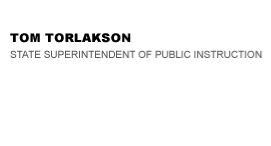July 16, 2012, Letter


Official Letter
Official Letter
July 16, 2012
Dear County and District Superintendents, Special Education Local Plan Area Directors, Special Education Administrators at County Offices of Education, Charter School Administrators, Principals, and Nonpublic School Directors:
ASSEMBLY BILL 114: PARENT SURVEY RESULTS
On June 30, 2011, Assembly Bill (AB) 114, Chapter 43, Statutes of 2011, was signed into law. Under AB 114, several sections of Chapter 26.5 of the California Government Code (GC) were amended or rendered inoperative, ending the state mandate on county mental health agencies to provide mental health services to students with disabilities. With the passage of AB 114, it is clear that local educational agencies (LEAs) are solely responsible for ensuring that students with disabilities receive special education and related services, including some services previously arranged for or provided by county mental health agencies. As LEAs arrange for the provision of related services the California Department of Education (CDE) has sought input from a variety of stakeholders.
An example of this input was the February 16, 2012, presentation made by the AB 114 Transition Work Group (TWG) participants representing families. A joint parent survey was administered by the National Alliance on Mental Illness (NAMI) California, Disabilities Rights Education and Defense Fund (DREDF), Family SOUP, and Team of Advocates for Special Kids (TASK). The survey was administered statewide through Survey Monkey and over 500 families responded (surveys were administered in both English and Spanish).
Survey Structure
The survey included 19 questions spanning several critical issue areas for families and parents. These included:
- Whether or not LEAs had continued or terminated the delivery of mental health services
- Whether or not LEAs were providing psychiatric and medication management services
- Whether or not LEAs were utilizing private insurance for the provision of mental health services
- Current status of parent/school communication
- Current status of Parent/LEA collaboration in the individualized education program (IEP) process
Survey Results
The following is a summary of the survey findings provided during the presentation made on February 16, 2012.
- Of the families who responded, 25-30 percent reported being told that services, including residential services, would not be provided or continued due to a change in law or funding. The survey authors also reported that several families responded that they had not received prior written notice with the reasons for terminating residential services.
- Of the families who responded, 24 percent reported that their child’s IEP included psychiatry and medication management in 2010-2011 while 19 percent of respondents reported that the LEA could no longer support a psychiatrist to provide medication monitoring.
- Respondent families reported using the following types of insurance:
- Private: 62.6%
- Medi-Cal: 29.1%
- Healthy Families: 5.1%
- No insurance: 3.2%
- Of the families who responded, 21 percent reported that services could only be provided if the parent would allow the LEA to bill insurance.
- Of the families who responded, 18 percent reported that services were denied due to lack of Medi-Cal eligibility.
- Of the families who responded, 24 percent had been asked to provide consent for the LEA to file for insurance services on an IEP. Of these respondents, a small number (N=9/94) volunteered that the district explained that consent could impact service caps, costs, or lifetime benefits from the use of their insurance.
- Of the families who provided responses, 64 percent reported that IEP teams had not addressed changes to services to their satisfaction. (Satisfaction with school related mental health support/services increased slightly from 2010-11 to 2011-12.)
- Of the families who provided responses, 48 percent reported encountering communication barriers with LEAs related to service planning.
Based on the responses received from families through the survey instrument, LEAs need to continue to follow the Individuals with Disabilities in Education Act (IDEA) requirements related to the following areas:
- Requirement to provide related services
- Changing services on an IEP (prior written notice)
- Parents as members of the IEP Team
- Use of public and private insurance
Providing Related Services
Per CDE’s guidance letter from July 26, 2011:
As this transition unfolds, LEAs must ensure that students continue to receive all services delineated in their Individualized Education Programs (IEPs) without interruption and in compliance with all applicable federal timelines. The provision of any related service must continue until an IEP team determines that the student no longer requires the service. The IEP must then be amended with the consent of the parent, guardian, or other holder of the student’s educational rights (http://www.cde.ca.gov/sp/se/ac/ab114memo.asp).
The provision of special education and related services is discussed in California Education Code (EC) Section 56001, which states:
- Each student having a disability will be provided a free appropriate public education.
- Each student having a disability will have his/her educational goals, objectives, and special education and related services specified in an IEP.
- Related services are defined pursuant to (EC) Section 56363.
Changing Related Services on a Student’s Individualized Education Program
As stated above, the provision of any related service must continue until an IEP Team determines that the service is no longer needed and the IEP is amended with informed consent provided by the parent, or holder of educational rights. Changing services on an IEP requires documentation that the student’s needs have changed resulting in the need to adjust the related services provided. The process for taking this course of action is described in EC § 56500.4 which covers the requirements for a prior written notice to be provided to parents when the LEA proposes a change of placement or related services as documented in an IEP.
EC § 56400.4 includes:
- Per Title 34, Code of Federal Regulations (CFR), § 300.503, prior written notice shall be given by the LEA to the parents when the LEA proposes to change the educational placement or the provision of a free appropriate public education of a child.
- The prior written notice is required to include:
- A description of the action proposed by the LEA, in this case the change in related services.
- An explanation of why the LEA proposes to make this change.
- A description of each assessment procedure, result, record, or report the LEA used as a basis for the change.
Parents as Members of a Student’s Individualized Education Program Team
Pursuant to EC § 56341(b)(1); the IEP Team shall include one or both of the pupil’s parents. Given that they are members of the IEP Team, any information provided by the parents regarding the student’s anticipated needs and other relevant information should be considered by the IEP Team as decisions are made for the provision of special education and related services (EC 56341.1[d][3][4]).
Use of Public and Private Insurance
A CDE guidance document on this topic, dated September 13, 2011, states:
Some financial assistance in paying for certain health care-related services may be available from insurance sources (see also Education Code 56363.5). The Code of Federal Regulations (CFR) implementing the IDEA includes guidelines outlining when school districts may access insurance:
- An LEA may access parents’ public or private health insurance benefits to pay for related services required for a free appropriate public education (FAPE) only if the parents provide informed consent (34 CFR 300.154[d][2][iv]; 34 CFR 300.154[e][2][i]; 34 CFR 300.9). The LEA may not require that parental consent is required for the child to receive FAPE.
- An LEA may not use the child’s public insurance benefits (such as Medi-Cal) to pay for related services required for FAPE if the use would result in any of the following:
- Out of pocket expenses, i.e., deductible or copayment amounts (although the LEA may pay the amount the parent would otherwise have to pay - see number four below)
- Decrease in lifetime benefits coverage
- Decrease in any other policy benefit
- Increase in premiums
- Cancellation or non-renewal of coverage
- Risk of loss of eligibility for home and community-based waivers (34 CFR 300.154[d][2][iii])
- If an LEA is unable to obtain parental consent for the use of a parent’s public or private insurance when the parent would incur a cost for a specified service required to ensure FAPE, the LEA may pay for the service (34 CFR 300.154 [f][1]).
- To avoid financial cost to parents who otherwise would consent to use public or private insurance, if the parents incur a cost, the LEA may pay the cost that the parent would otherwise have to pay to use their benefits or insurance (e.g., deductible or co-pay amounts [34 CFR 300.154[f][2]).
These findings suggest that there may have been compliance issues with the provision of related services and use of private insurance to cover the cost of related services. The CDE will utilize its complaint system and ongoing compliance monitoring process, including the newly revamped educational benefit process, to ensure that LEAs are complying with special education requirements, including the areas touched on by the survey conducted by NAMI, DREDF, Family SOUP, and TASK.
If you have any general questions regarding this subject, please contact the Statewide Policy and Implementation Unit of the Special Education Division by email at SPI@cde.ca.gov.
Sincerely,
Original signed by Fred Balcom. Hard copy of the signed document is available by contacting the Special Education Division's Director's Office at 916-445-4602.
Fred Balcom, Director
Special Education Division
FB:rb
